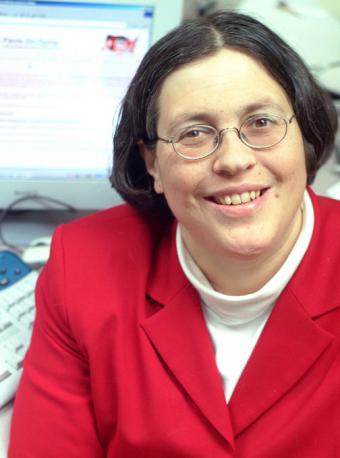PROVIDENCE, R.I. [Brown University] — Researchers from Brown University and Harvard Medical School are calling for improved decision-making in the use of feeding tubes for hospitalized nursing home residents with advanced dementia.
Their position follows an eight-year study, which found that the use of feeding tubes varies widely. Among their major findings: At 25 percent of the nation’s acute-care hospitals, this vulnerable population had a one in 10 chance of having a feeding tube inserted. Twelve percent of acute-care hospitals did not insert a feeding tube at all.
Medical evidence has long suggested that feeding tubes do not improve survival or overall outcomes in patients with dementia, a terminal illness that affect a patient’s mind and eventually the ability to eat.
Details of the study are outlined in the Feb. 10, 2010, issue of JAMA, the Journal of the American Medical Association.
“Our results suggest that decisions to insert a feeding tube in persons with advanced dementia are more about which hospital you are admitted to than a decision-making process that elicits and supports patient choice,” said Dr. Joan M. Teno, lead author and professor of community health and medicine at the Warren Alpert Medical School of Brown University.
The range of feeding tube use varies widely. Researchers found the rate of feeding tube insertions per 100 hospital admissions varied from 0 to 39, depending on the hospital. On average, 6.5 out of every 100 admissions resulted in a feeding tube insertion.
Teno and the other researchers conducted their study by looking at nearly 2,800 acute-care hospitals. They sifted through Medicare claim files involving more than 280,000 admissions from 2000 to 2007 to determine the rate of feeding tube insertions among hospitalized nursing home residents over age 66 with advanced dementia. They looked at hospitals with at least 30 admissions involving nursing home residents with advanced dementia during that period.
Hospitals with a culture of aggressive care at the end of life were nearly three times more likely to insert a feeding tube, according to the study. Larger or for-profit hospitals tended to use them more. Smaller, rural hospitals not affiliated with medical schools used them far less frequently.
Second author Dr. Susan Mitchell, associate professor of medicine at Harvard Medical school, said the data points to a clear need to examine how treatment decisions are made for patients with advanced dementia.
“Our results call for acute-care hospitals to examine how decisions are made for nursing home residents with advanced dementia, to ensure the decisions reflect patient wishes and values,” Mitchell said.
Still, Teno said, there should always be exceptions, particularly if the use of feeding tubes reflects a patient’s religious wishes.
“If a patient has strong religious wishes that they receive every bit of life-sustaining treatment regardless of outcome, we are still a society where we have to honor those wishes,” Teno said. “But we need to make sure these decisions are based on patients’ wishes and values.”
Teno herself keeps in mind the Oct. 15, 2008 death of her mother in mind following a stroke and then terminal illness.
“My mother requested that she not have a feeding tube inserted if she became terminally ill,” Teno said. “What informed my mom’s care was her wishes and values, and I want our health care system to ensure that these important decisions consider the values and wishes of that dying patient. As we reform our health care system, incentives that ensure patient choice are key.
To that end, the research teams will publish hospital rates of feeding tube insertions for persons with advanced dementia on its Web site, LTCFocUS.org.
Teno worked with researchers from Brown, Hebrew Senior Life (affiliated with Harvard Medical School) and the Providence Veterans Affairs Medical Center.
The research was funded as part of a grant and a program project on shaping long-term care in America funded by the National Institute on Aging and based at the Center for Gerontology and Health Care Research at Brown.

